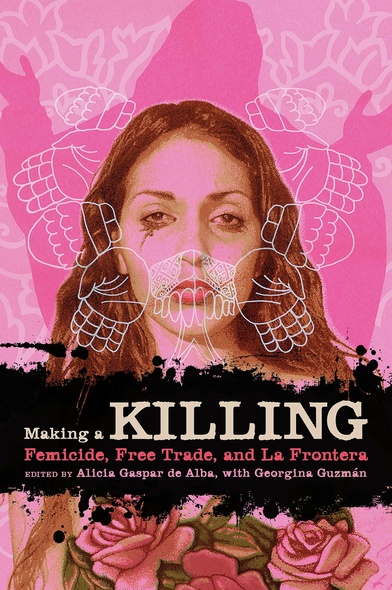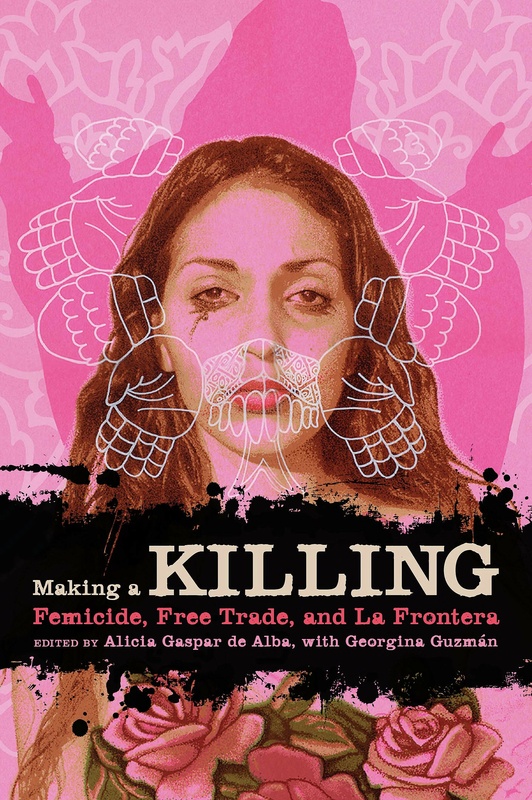Making a Killing
Femicide, Free Trade, and La Frontera
Since 1993, more than five hundred women and girls have been murdered in Ciudad Juárez across the border from El Paso, Texas. At least a third have been sexually violated and mutilated as well. Thousands more have been reported missing and remain unaccounted for. The crimes have been poorly investigated and have gone unpunished and unresolved by Mexican authorities, thus creating an epidemic of misogynist violence on an increasingly globalized U.S.-Mexico border.
This book, the first anthology to focus exclusively on the Juárez femicides, as the crimes have come to be known, compiles several different scholarly "interventions" from diverse perspectives, including feminism, Marxism, critical race theory, semiotics, and textual analysis. Editor Alicia Gaspar de Alba shapes a multidisciplinary analytical framework for considering the interconnections between gender, violence, and the U.S.-Mexico border. The essays examine the social and cultural conditions that have led to the heinous victimization of women on the border—from globalization, free trade agreements, exploitative maquiladora working conditions, and border politics, to the sexist attitudes that pervade the social discourse about the victims. The book also explores the evolving social movement that has been created by NGOs, mothers' organizing efforts, and other grassroots forms of activism related to the crimes. Contributors include U.S. and Mexican scholars and activists, as well as personal testimonies of two mothers of femicide victims.
Alicia Gaspar de Alba, a native of the El Paso/Juárez border, is Professor and Chair of the César Chávez Department of Chicana and Chicano Studies at UCLA. She has published eight other books, including Chicano Art Inside/Outside the Master's House: Cultural Politics and the CARA Exhibition.
Georgina Guzmán is a PhD candidate in English at UCLA.
- Acknowledgments
- Introduction: Feminicidio: The "Black Legend" of the Border (Alicia Gaspar de Alba and Georgina Guzmán)
- Part One. Interventions
- 1. Accountability for Murder in the Maquiladoras: Linking Corporate Indifference to Gender Violence at the U.S.-Mexico Border (Elvia R. Arriola)
- 2. Poor Brown Female: The Miller's Compensation for "Free" Trade (Alicia Gaspar de Alba)
- 3. Ghost Dance in Ciudad Juárez at the End/Beginning of the Millennium (María Socorro Tabuenca Córdoba)
- 4. Gender, Order, and Femicide: Reading the Popular Culture of Murder in Ciudad Juárez (Steven S. Volk and Marian E. Schlotterbeck)
- Part Two. ¡Ni Una Más!
- 5. Binational Civic Action for Accountability: Antiviolence Organizing in Ciudad Juárez/El Paso (Kathleen Staudt and Irasema Coronado)
- 6. The Suffering of the Other (Julia E. Monárrez-Fragoso)
- 7. The V-Day March in Mexico: Appropriation and Misuse of Local Women's Activism (Clara E. Rojas)
- 8. Femicide, Mother-Activism, and the Geography of Protest in Northern Mexico (Melissa W. Wright)
- Part Three. Testimonios
- 9. "The Morgue Was Really from the Dark Ages": Insights from a Forensic Psychologist (Candice Skrapec)
- 10."We'll See Who Wins" (Eva Arce)
- 11. "The Government Has Tried to Divide Us" (Paula Flores)
- 12. Las Hijas de Juárez: Not an Urban Legend (Rigo Maldonado)
- Afterword: Goddess Murder and Gynocide in Ciudad Juárez (Jane Caputi)
- Appendix A: Selected Binational Timeline of the Juárez Femicides
- Appendix B: The Juárez Femicides in Print, Film, and Music: A Partial List
- Notes on Contributors
- Index
- Reprints and Permissions






